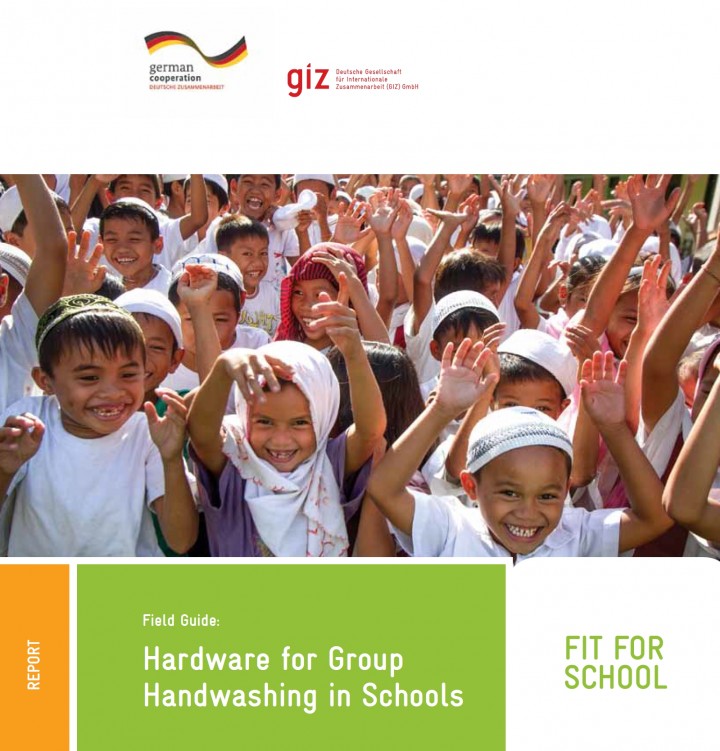
Published in: 2013
Pages: 50
Publisher:
Deutsche Gesellschaft für Internationale Zusammenarbeit (GIZ), Philippines, ISBN 978-3-95645-057-0
Author:
GIZ Fit for School
Uploaded by:
SuSanA Admin
Partner profile:
Deutsche Gesellschaft für Internationale Zusammenarbeit (GIZ) GmbH
8556 Views
253 Downloads
Location of library entry
Understanding that the school environment can enable development of healthy behaviors among children who may not have the same learning opportunity in their homes, schools serve as the center of development. Adapted from the experiences of Filipino NGO, Fit For Schools, this toolkit of effective handwashing tools promotes handwashing programs designed for schools and inspires a healthy learning environment by addressing approaches, common mistakes, and lessons learned regarding water sources, basins, piping and drainage, and introduces a new facility with improved functionality.
The simple practices of handwashing and toothbrushin contribute to a holistic health and wellbeing that should be an integrated essential of a child’s education. The Filipino NGO, Fit for School Inc. has supported implementations of a public school health program to start or enhance this largely unmet basic need.
Content - Summary
In the pioneering country of the Philippines, it is dubbed as the Essential Health Care Program (EHCP), where it is expanding nationwide, having been incorporated into policy under the mandate of the Department of Education. Indonesia, Lao PDR and Cambodia have also recently adopted it and have launched the program in several pilot schools. Despite the provision of guidelines on facility construction, the different socio-political realities and cultures in these countries produced diverse results. The aim of this report is to showcase the differing implementations in these pilot countries, especially how each one has built their facilities to date. This is primarily a photo catalog of the various facilities with a close look at the materials used. This analysis will explore design, durability and practicality issues encountered. The Philippines is the first pilot country and has been implementing the program for the past 5 years. It was adopted by the national government in 2009, and now targets more than 2.5 million public elementary school children in 40 provinces. Due to the high demand from other Southeast Asian governments, the Regional Fit for School Program was launched in 2011 as a joint three-year research and development initiative led by GIZ in partnership with the Southeast Asian Ministries of Education Organization and its Regional Center for Educational Innovation and Technology (SEAMEO INNOTECH). The program aims to adapt the Fit for School approach to the specific national context in Cambodia, Indonesia and Lao PDR, thereby creating a tailored implementation template and respective human capacity development tools, which will support the respective Ministries of Education to implement the program using its own manpower and financial resources. In 2012, the program facilitated the construction of group washing facilities and conducted baseline studies on health and sanitation indicators in model schools in each country. At present, all model schools are currently conducting the group activities as part of their daily school curricula. This catalog looks at approaches, common mistakes and lessons learned regarding water sources, basins, piping and drainage, and introduces a new facility with improved functionality.
Bibliographic information
GIZ Fit for School (2013). Field Guide: Hardware for Group Handwashing in Schools. Deutsche Gesellschaft für Internationale Zusammenarbeit (GIZ), Philippines, ISBN 978-3-95645-057-0
Filter tags
East Asia & Pacific English Guidelines and manuals Practitioners Recommended by SuSanA (other than SuSanA publications) Schools Sustainable WASH in institutions and gender equality (WG7)















